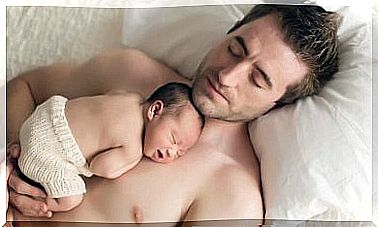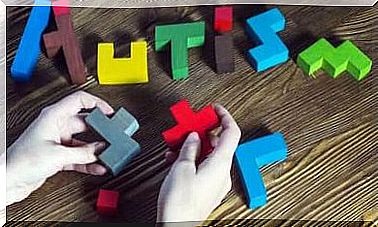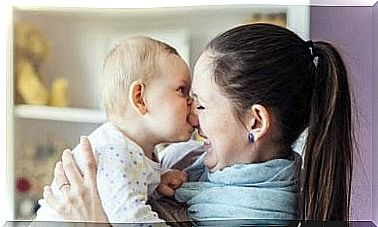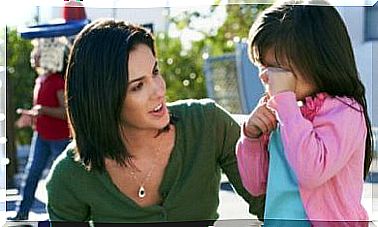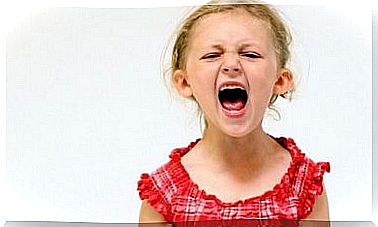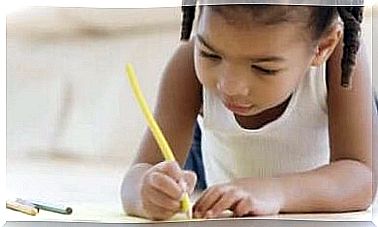Verbal Abuse: A Form Of Child Violence
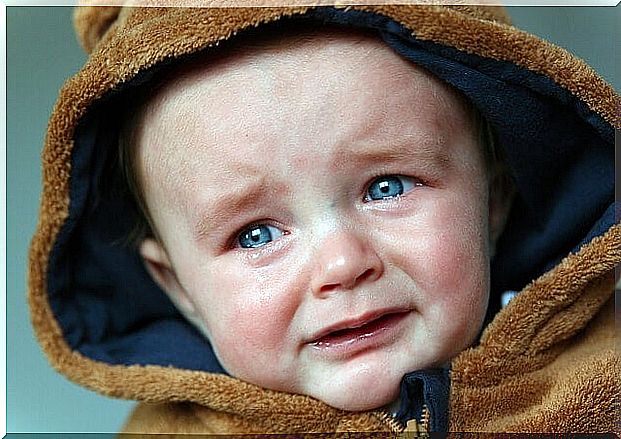
The education of children is a challenge for all parents. As difficult as this task is, by no means can violence be used as a method of teaching. The poor education and bad character of many adults make verbal abuse the most common form of child abuse.
When talking about child violence, it is customary to imagine slaps, pinches and painful punishments for the little ones. However, there are much more subtle actions, which may even go unnoticed. They hinder a child’s emotional development and self-esteem.
Parents who cannot “control” their children or cannot find a way to make them understand what is right and wrong resort to contempt, underestimation, and even insults to impose their authority and teach. Even if this way is the worst method.
Despite the passing of years and the great advances of human civilization, they still have not managed to reduce the form of child violence that is verbal abuse. On the contrary, verbal abuse is still present in many moments of everyday life.
Why is verbal abuse a form of child abuse?
On November 20, 1989, the United Nations General Assembly adopted the International Convention on the Rights of the Child. It is a 54-page document that has become the most accepted human rights treaty in the world. Many countries adhered to its laws and even its constitutions.
This Convention establishes that children and adolescents are individuals with rights, deserving of respect, dignity and freedom. Furthermore, the archaic conception of the child as a passive object of intervention by the family, the State and society is revoked.
Verbal abuse is a way of disrespecting children and violating their dignity. This is considered a violation of the law in the 195 countries that are part of the UN.
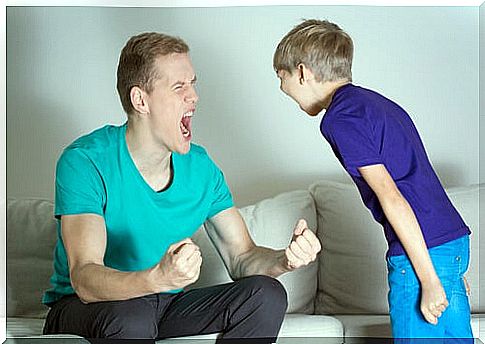
The most common forms of verbal abuse
Words can hurt as much or more than a blow. The effects remain in the minds of the little ones, as they consider the father figures as a model for wisdom and teaching. This situation can lead to the thought “if my father or mother says I don’t do anything right, it must be true”.
Verbal abuse is considered a form of child abuse that causes emotional distress. The Diocesan Child and Adolescent Team ( Equipo Diocesano de Niñez y Adolescencia – EDNA ), an Argentine association that promotes the rights of the child, classifies verbal violence in two ways:
1.- Active verbal violence
It includes lack of respect, insult, over-demanding, and lack of understanding. Active verbal violence manifests itself in phrases such as:
- “You are good for nothing”
- “You’re dumb! Don’t understand what I’m explaining?
- “What’s your head for, it seems you think with your feet”
- “You’re already big, I’m tired of you”
- “I’m tired of saying the same things all the time”
- “You are as idiotic as your father/mother”
- “You’ll see when we get home”
2 .- Passive verbal violence
It includes indifference, lack of love and disinterest. It can cause serious disorders, such as what is called anaclitic depression.
Consequences of verbal abuse
Unfortunately, verbal abuse has become a way of “educating” that is often accepted as common by society. Someone will always have a story like “when I was a kid my parents beat me with a belt to make me behave”.
Accepting violence without critically reflecting on its possible effects is one of the worst attitudes society can have.
This attitude can cause serious problems in the child’s emotional stability, such as: hurting their self-esteem, ending their will and ability to relate to others, feelings of insecurity and fear in front of their parents – which should inspire exactly the opposite – and the feeling of guilt for not being able to meet their demands.

How to avoid verbal abuse?
EDNA recommends the following actions to make verbal abuse a form of past child violence:
- Do not lower the child’s self-esteem. Value your achievements and encourage the desire to improve.
- Be a good example. Children watch and absorb everything. Therefore, if they see that their parents solve their problems with shouting, threats and physical violence, in the future they will do the same thing with others and with their family.
- Talk to your child. Always remember that he is a child and therefore has a lot to learn. As he will not always behave well, it is necessary to talk to explain why certain behavior is wrong or right.
- Don’t demand too much. If there’s one thing that destroys a child’s self-esteem, it’s not being able to live up to the parents’ expectations. Therefore, encourage your child to always be a little better, but for their own development, not to compete and always have to win.
In recent years, many awareness campaigns have aimed to completely eliminate verbal abuse. So if you witness any situation in which you identify a situation like this, try to alert those involved to avoid further damage.
